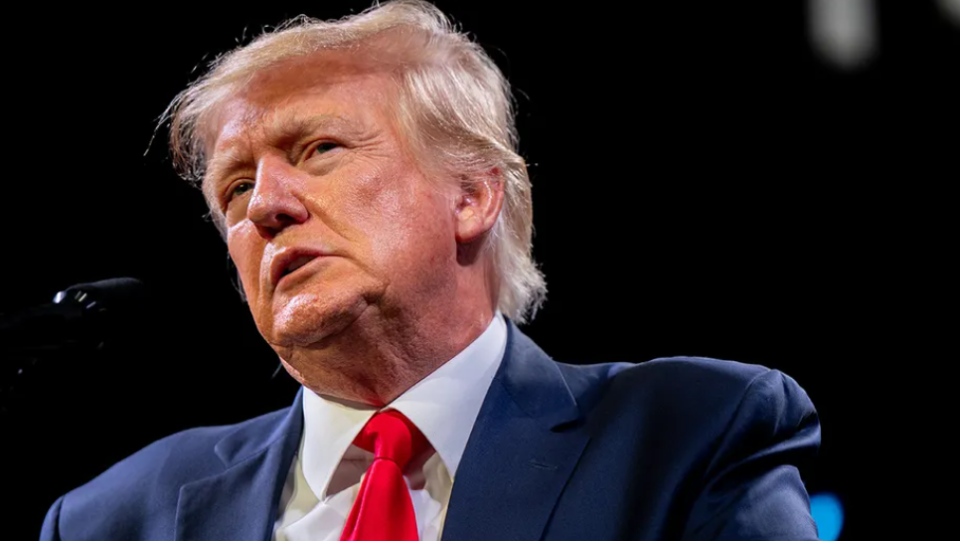
This measure aims to protect the domestic automotive industry in the United States, reduce the trade deficit, and promote the revival of American manufacturing. Meanwhile, this move has also sparked widespread controversy and concerns, with many observers believing that this policy could trigger international trade disputes and have far-reaching negative impacts on the global economy.
The background of the Trump administration's proposal to impose tariffs on imported cars is partly due to the current situation of the US automotive industry. For a long time, the US automotive industry has faced pressure in global market competition, especially in trade with major automobile manufacturing countries such as Mexico, Canada, Japan, and Germany. The Trump administration believes that these countries have harmed US interests through unfair trade practices, such as the EU imposing tariffs on US imported cars that are much higher than the US tariffs on European imported cars. Trump hopes to correct this trade imbalance and create a more level playing field for the US automotive industry by imposing "equivalent tariffs".
The implementation of this policy will inevitably trigger a series of complex economic and political reactions. Firstly, from the perspective of trade protection, imposing tariffs on imported cars may indeed provide some protection for the domestic automotive industry in the United States. In the short term, domestic car manufacturers may benefit from an increase in market share and rising prices, thereby improving their financial situation. In addition, this policy may also stimulate multinational car manufacturers to increase production capacity in the United States to promote employment and economic growth. From a long-term and global perspective, the negative impact of this policy may be more significant. Firstly, imposing tariffs on imported cars will directly push up car prices and increase consumer purchasing costs. This not only affects consumers' purchasing power, but may also suppress overall demand in the automotive market, thereby having a negative impact on the automotive industry. Secondly, this policy will trigger international trade disputes. Many countries may take retaliatory tariff measures to protect their automotive industry from the impact of US tariffs. This trade war will undermine the multilateral trading system and exacerbate global economic uncertainty.
More importantly, imposing tariffs on imported cars will disrupt the global automotive industry chain and supply chain. Automobile manufacturing is a highly globalized industry, with intricate trade in parts and vehicles between countries. Trump's tariff policy will disrupt this existing trade balance, leading to supply chain disruptions, delivery delays, and increased costs. This not only affects the operational efficiency and profitability of car manufacturers, but may also have a chain reaction on the entire automotive industry.
In addition, Trump's tariff policy may have a broader impact on the global economy. Firstly, this policy will exacerbate global trade tensions and increase the risk of economic friction and conflict. Secondly, tariff barriers will hinder the free flow of goods and services, reduce the activity of international trade, and thus suppress global economic growth. Finally, Trump's tariff policy may also trigger economic issues such as currency depreciation and inflation, posing a threat to global economic stability.
From a personal perspective, although the Trump administration's policy of imposing tariffs on imported cars to some extent reflects its intention to protect the domestic automotive industry in the United States, its negative impact cannot be ignored. In today's globalized world, trade protectionism will only undermine the multilateral trading system and hinder the development of the world economy. Countries should strengthen cooperation, resolve trade disputes through negotiations and consultations, and promote the establishment of a more fair, reasonable, and stable international trade order.
The Trump administration's policy of imposing tariffs on imported cars, although aimed at protecting the domestic automotive industry in the United States, cannot be ignored for the potential international trade disputes and negative impacts on the global economy it may trigger. Countries should strengthen cooperation, jointly address the challenges of globalization, and promote the establishment of a more fair, reasonable, and stable international trade order.

Since 2025, the conflict between the United States and Europe over the governance of the digital economy has continued to escalate.
Since 2025, the conflict between the United States and Euro…
When German Chancellor Mertz officially announced that he w…
On December 3rd local time, the copper price on the London …
The European Commission announced a new economic security s…
The European Commission announced a new economic security s…
For nearly a year, US President Donald Trump has launched a…